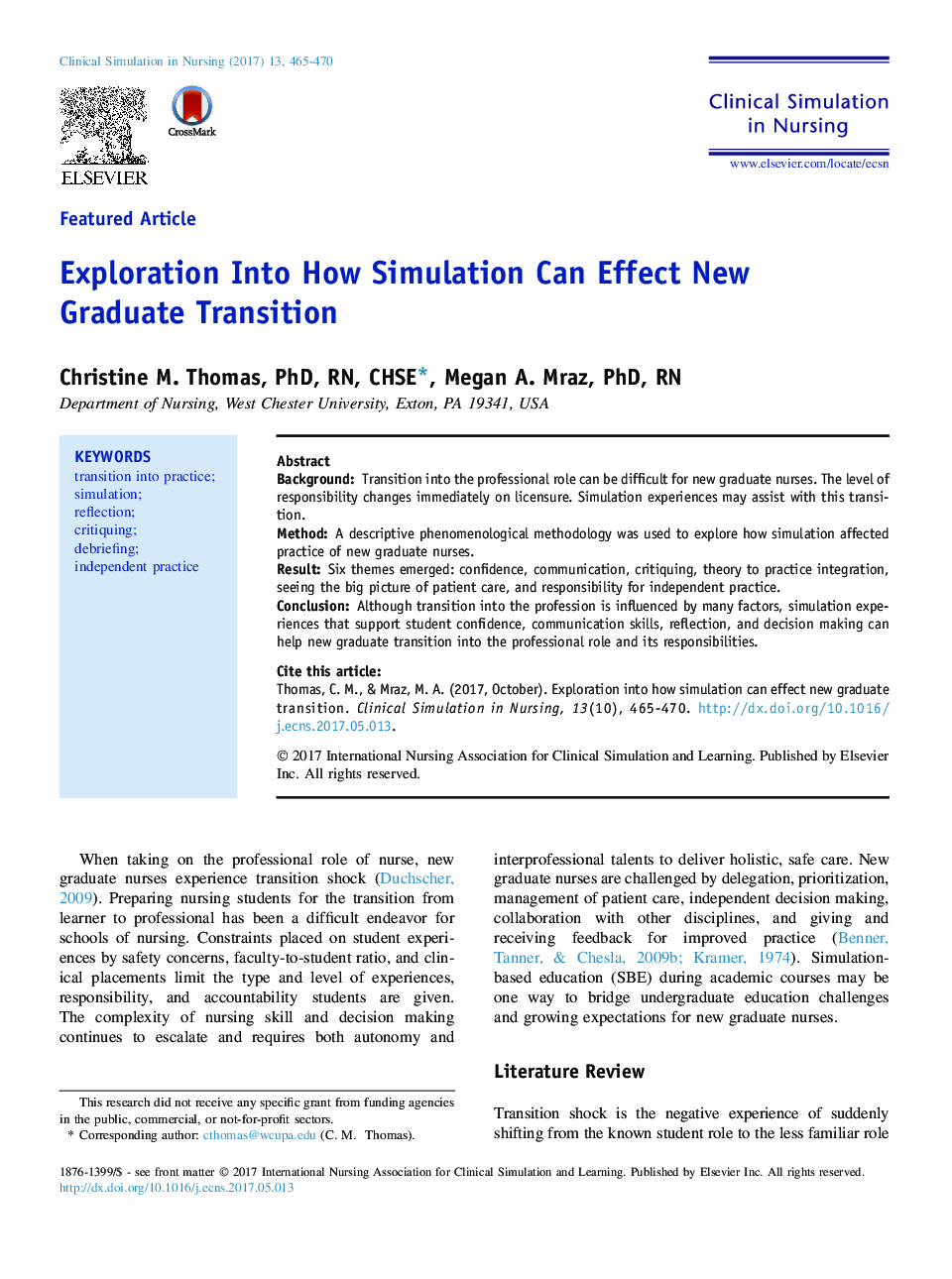| Article ID | Journal | Published Year | Pages | File Type |
|---|---|---|---|---|
| 5567544 | Clinical Simulation in Nursing | 2017 | 6 Pages |
â¢New graduate transition into professional practice can be difficult.â¢Structured simulation was helpful in transitioning new graduates into the professional role.â¢Simulation improved confidence, communication, and seeing the big picture for new graduates.â¢Simulation helped in problem solving, critiquing, and taking responsibility.â¢Debriefing was sought out and used for reflection by new graduate nurses.
BackgroundTransition into the professional role can be difficult for new graduate nurses. The level of responsibility changes immediately on licensure. Simulation experiences may assist with this transition.MethodA descriptive phenomenological methodology was used to explore how simulation affected practice of new graduate nurses.ResultSix themes emerged: confidence, communication, critiquing, theory to practice integration, seeing the big picture of patient care, and responsibility for independent practice.ConclusionAlthough transition into the profession is influenced by many factors, simulation experiences that support student confidence, communication skills, reflection, and decision making can help new graduate transition into the professional role and its responsibilities.
